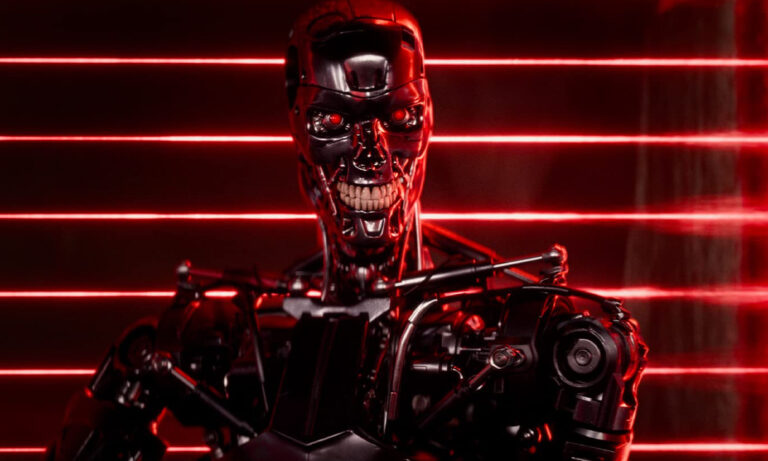Scientists invent Terminator-like self-healing skin for robots

If you had nightmares after watching The Terminator as a kid, then brace yourself because it might be a reality sooner than you think. Killer robots and self-sufficient automation may no longer be future pipedreams as scientists have broken new ground on artificial self-healing skin. First they allowed them to feel pain, and now this?
The team from Stanford University, led by professor Zhenan Bao, claim to have broken new ground in the development of synthetic skin, creating a multi-layer self-healing synthetic electronic skin that can self-recognise and repair itself when injured. It’s even able to function properly while healing.
The co-author of the paper, Dr Sam Root told Talker that the skin is “soft and stretchable. But if you puncture it, slice it, or cut it each layer will selectively heal with itself to restore the overall function. Just like real skin.” Right, just like real skin, only faster…
First unveiled in 2012, the invention can now also be programmed to detect an array of changes, from electrical to thermal. It also provides a barrier between the body and toxins, viruses and even ultraviolet radiation.
So, what does this mean for the future of humanity? Well, for starters it means that we’re closer to killer robots than we’ve ever been before, now that the technology is there to allow them to repair and heal on their own on the battlefield. We doubt they’ll be taking the shape of Arnold Schwarzenegger anytime soon, but it’s still a scary prospect.
It also means that androids and artificial automation are going to be even more viable in the near future. Those crusty touchscreens withering away in every McDonald’s might soon be able to shape themselves up after abuse from hungry customers. Heck, you might even see a robot working the grill in the back. What it says for the swathes of people who’ll be losing their jobs to robots and artificial intelligence is another question entirely.
The synthetic flesh, which also allows for robots to feel a sense of touch if desired, may also see a rise in sex robots. With ultra-realistic skin and an AI personality tailored to your wants, who needs real connections anymore?
It seems increasingly likely that gen Z will see androids implemented into society in our lifetime—we just hope they don’t go all Skynet on us and try to enslave us.




